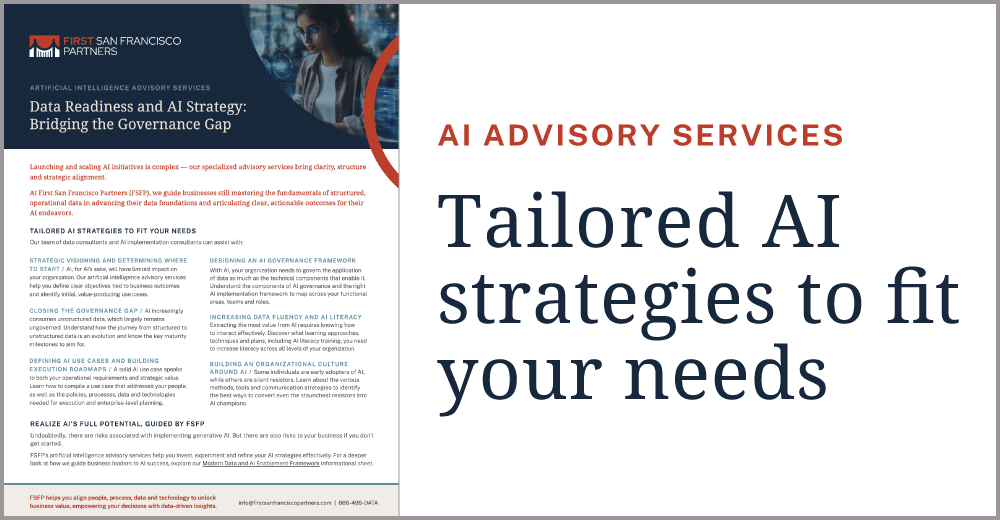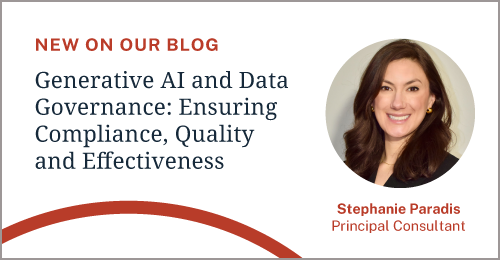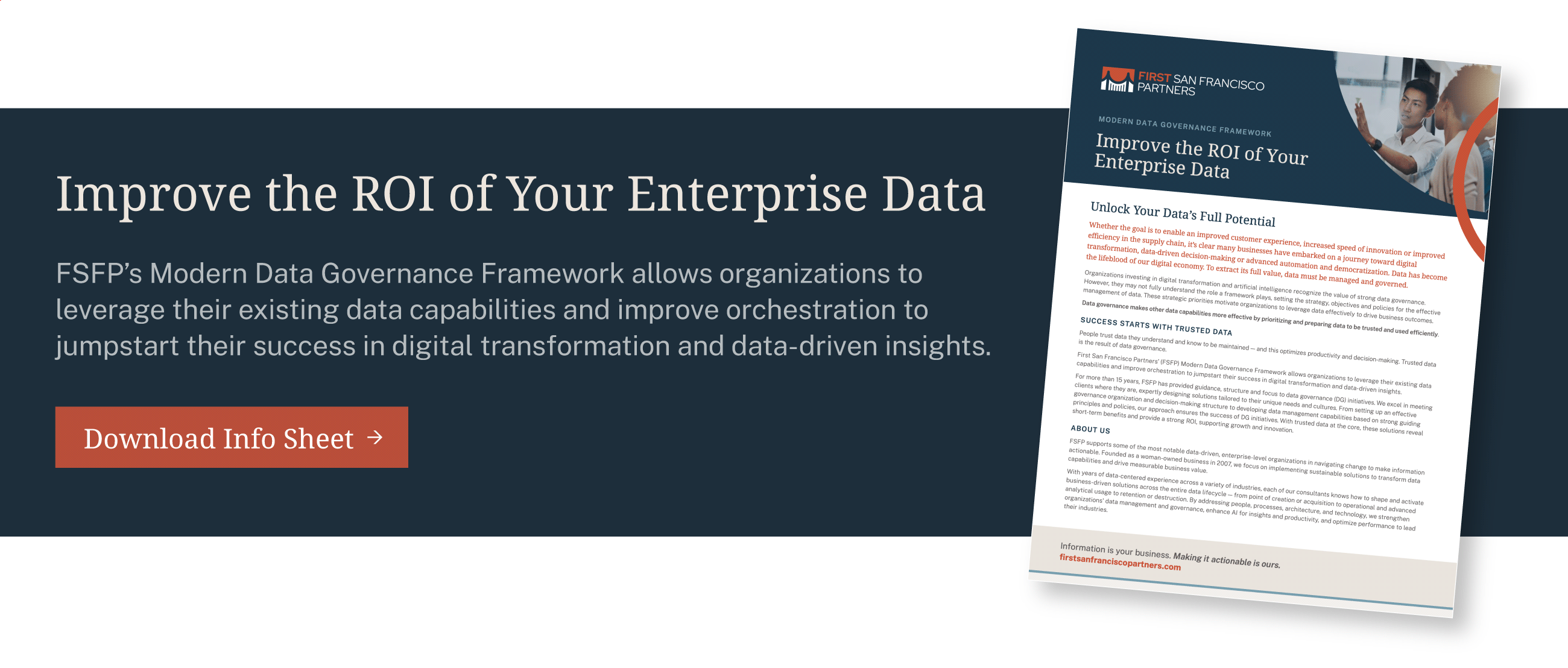At the end of Kelle O’Neal’s recent EDGO (Enterprise Data Governance Online) presentation, a participant raised an interesting question that illustrates just how much data governance has evolved since its inception in the early 2000s.
They asked, “what is the difference between data governance and data governance as a service?” It’s a great question with a nuanced answer — and it involves a cultural mindset shift. Here is Kelle’s response with some additional context.
Data Governance Defined
Data governance is the organizing framework for establishing strategy, objectives and policies for effectively managing data. It consists of people, processes and technologies required to manage and ensure ongoing quality, availability, usability, integrity, consistency, auditability and security of data.
In essence, data governance strives to ensure companies have reliable and consistent data sets to assess performance and enable data-driven decision-making.
Data Governance as a Service
Kelle says that when we move from the traditional meaning of data governance to it being a service, we can begin to see the similarities in how governance might behave as other shared services do. Because if data governance becomes embedded into organizational processes in the same way as other areas, the shift can be transformational.
She often uses the examples of human resources (HR) and finance departments as analogous shared services. She says, “Think about the functions of HR. It creates enterprise-wide guidelines on areas that include how to interview, hire and promote people and what benefits you can offer employees. HR sets policies and provides support. It communicates tools and systems to use. And its goal is to enable departments to make these HR practices consistent across the company. It doesn’t execute on all the HR practices itself.”
Data is also everywhere in the enterprise — and is an asset, just like your employees. The role of data governance is to create guidelines or policies on how data should be created, managed, shared, used and ultimately archived or deleted.
Even in a small organization, it’s impossible for governance to create or manage all of the data in the enterprise. Therefore, like HR, data governance should enable the organization to govern the data on their own, by providing templates, standards, tools, systems and expertise to support the data lifecycle and facilitate consistency. And like HR, it should not execute on all the data practices itself.
Promoting Data Governance as a Service
Kelle says that the next time you explain data governance’s role to someone in your organization, consider these talking points that can help position governance in a new and more meaningful way that highlights its operational support across the entire organization:
- Champion the “service, not a project or program” idea by emphasizing that data governance doesn’t own or make changes to the data. The business owns the data.
- Keep data governance’s focus on creating the infrastructure of support, awareness and decision-making and how this ensures the company can access, trust and use its data.
- Describe governance as an enterprise-wide service, not a program. Think about the language you use and make sure it doesn’t emphasize the wrong aspects of governance (e.g., a short-term initiative, control with no value, a program that doesn’t feel all that relatable to people, or a top-down “follow these or else” set of rules).
- Explain that while there are established governance guidelines, a department may need to adapt certain governance practices for its area. This is similar to how HR’s mandates are sometimes interpreted differently for a legitimate business reason.
A Mindset Shift to Shared Services
The shared service concept could be a big shift for your company — or it might be a small one, depending on where you are from a governance maturity standpoint. “The idea is to make data governance the service and support structure that facilitates positive and consistent data management practices across the organization,” Kelle says.
To hear Kelle’s full remarks from her Next-Generation Data Governance session from EDGO which elicited this question, request the recorded sessions from DATAVERSITY’s January 22 event and catch up on what you missed.
Could you use Kelle’s HR analogy as way to explain to data governance’s shared-service nature to someone? If you try any of Kelle’s “think service, not program” advice, leave a comment on this blog post to let us know how this shift in vernacular is received in your company.



